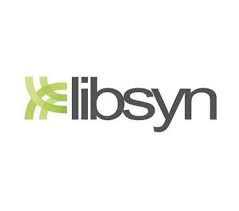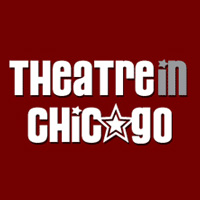A New Immersive "Recipe" Ahead for Director David H. Bell
A New Immersive "Recipe" Ahead for Director David H. Bell
When we last spoke on the Conversations podcast in 2016, David H. Bell and a spirited group of co-creators were at the time huddled around the game plan for a musical version of the Knute Rockne story. In the years that have followed for the director and educator whose extensive body of work has received over 45 Joseph Jefferson Award nominations and has received the award a dozen times to date, he has directed the critically acclaimed Windy City Playhouse production of Southern Gothic, an immersive theatrical experience that took Chicago audiences by storm.
The success of Southern Gothic has now given birth to a new project with restaurant impresario Rick Bayless and the Windy City Playhouse—a fascinating concept entitled A Recipe for Disaster that will debut this fall in the club space below the iconic Chicago theatre district restaurant Petterino’s, which, it was announced in July, will be opening soon under new and separate ownership.
David Bell joined the Conversation recently to discuss the development of the new show scheduled to open on October 6th, how the pandemic impacted his Northwestern students and his professional career, and what might be ahead for the future Southern Gothic.
Ed Tracy (ET): We have been through this monumental shutdown. Nobody expected it would last as long as it did. It's almost an equally monumental start up with a lot of different players at every single professional level in America. Storefront theatres. Non-profits. Professional theatres. Everyone is in this major shift. This pivot. When you found yourself in the middle of this, what gave you hope to go forward? Did you have a series of projects that kept you busy? I know you were teaching, but how did you put all of that together?
David Bell (DB): In many ways I was lucky. As things slowed down—I lost nine jobs essentially that either got postponed or canceled altogether as a director and in my professional career, but I, fortunately, had an abundance of time, therefore, to really put an effort into my teaching, figuring out how to teach via Zoom and continually pivoting as the restrictions that surrounded the COVID change. I ended up in one of the most exciting teaching gears I've ever had. The students were extraordinary. And a hundred percent of the time when I found myself a little at sea—which happened more often than I care to admit—it was the students who not only came up with the solution, but actually turned the experience of teaching into a real positive. They were focused. They were dedicated. And, most of all, they were really inventive about how they needed to get educated and they often provided me solutions to the problems that the COVID pandemic had created. It turned out to be a wonderfully positive time in the life of my teaching. Coupled with this clearly national sense of isolation and for months thinking that things would change, some of the projects that I am working on I'm involved as a creator, so I was able to focus as a writer in three or four projects. I have a new version of Christmas Carol opening up at the Alliance Theater in Atlanta. So I did several rewrites of that. I'm working on the new project with Windy City Playhouse and although I'm only the director on A Recipe For Disaster, I got involved in moving that forward. The wonderful composer Ira Antelis and I have been working on a musical about aging that I'm also very excited about. So those things started moving to the fore and I spent a lot of time on the writing side of my creative projects rather than the directing projects.
Strangely, we had a very, very long and slow and slightly exhausting first six months of this pandemic where we continually discovered that we are able to do less and less. And that ended up into a kind of numbing, sick additional six months where everything seemed pretty much shut down. But as soon as things started coming back, the fall seemed like the place to reopen and vaccinations started happening, all of a sudden everything hit at once. I'm currently involved in about seven different projects, all that are going to be opening up during the course of this calendar year. I'm feeling overwhelmed, but I'm very grateful to be at a point in my life and my career where I am involved in enough different projects that I generally can keep myself busy. Now it seems that things are coming back very, very strongly. And of course, three of the projects that I'm working on are connected to Windy City Playhouse.
ET: It's an understatement to say that you, David Bell, do not have a lot of moss growing under your feet. You have had an extraordinary career. It's hard not to look back at that career and ask: “How did he find all that time to do these things? And all of these projects are coming at a time when the University is coming back in a new and different way from this past year. Turning to Northwestern for just a moment, what are some of the changes looking like in the performing arts as the pandemic moves into the fall?
DB: We are still being very, very cautious. Northwestern has wisely decided to move very slowly and cautiously and follow the cutting edge of CDC recommendations, rather than proceed them or come up parenterally about how to move forward. So, I think in the fall, they're going to be very cautious. But by winter, we're planning to be back and presenting shows. Winter and spring will feel very much like it has always felt. Our highest priority is the safety of the students. And you know, the new Delta variant has thrown everybody a curve ball. The number of people who are reluctant to getting vaccinated has made this a far-from-done deal. It is not going away as thoroughly as it seemed about a month ago.
ET: There are a lot of projections in the last six months or so about January openings, you mentioned that things moved up to the fall and now we're kind of in that start, don't start, how fast process. You see larger theatres, and others that have received funding, have been able to sustain themselves. What is the outlook for the smaller theatres who are operating in a small space, which is really a breeding ground?
DB: I'm always of two minds. I always understand and fully appreciate the challenges at the moment, and they are considerable at this moment. But at the same time, I also believe that every challenge is an opportunity and there is real opportunity in smaller spaces. I think the thing that makes live theatre so exciting is its ability to create an environment that is individually sensorily impactful on an audience. And there is something about the very smallness of a storefront theatre here in Chicago that creates real immediacy that brings the action of the show right to you. And I think there's going to be an uptick in the need to be surrounded in a community of people having a shared experience. It's not going to be a giant shared experience. One of the remnants of the pandemic might be that there is an embrace of smaller, more unique, more immersive kinds of experiences. I think that is a real possibility. The big arena shows—the big multi-million dollar musicals, the high-tech musicals—there will always be a market for those, but I think the theatre—the idea of a community gathering to share a single dramatic event—is going to happen everywhere. And I think it's going to be a great boon to the smaller theatres that have been able to survive the last 18 months.
ET: To that shared experience you talk about: I know that you have a fondness for military history, you have an extensive history library and you're an avid reader. World War II was a shared experience for the veterans. Many historians agree that the success of the World War II generation was that they had this ‘like’ experience. Is this pandemic going to affect people in the arts and everywhere else in the same way?
DB: I don't know. My hope is yes, but there was a lack of cohesion in the sense of national identity being tied up with combating this virus. And so we're at a very polarized time. And I think there is politicalization of how people have responded to the pandemic that, in fact, instead of joining us in the single effort that we felt in World War II, has really done just the opposite. And, you know, that there are those people who don't believe that there was ever a pandemic. There are people who feel that it was created. There are people who feel that somehow vaccinations are a government plot. And so somehow this national crisis has widened the gaps between us as opposed to World War II which bridged the gaps that were between us.
ET: There is a role for the performing arts and others to help speak to that. I thought early on the first two or three months that we would have a lot of artists holding up, creating new art and that out of that art would come other really substantive pieces. And it seems to me that, A Recipe For Disaster, which was in the cooking pot for a long, long time before, is a unique, innovative new piece that is going to be perfectly centered Chicago's theater district downtown and the kind of fully scripted, immersive event that you have very successfully already created in Southern Gothic.
So, let's turn to A Recipe For Disaster. Tell me about the development process from your perspective, how it came to be and how you got involved.
DB: I love the Windy City Playhouse. I am an associate artist with the institution. I love Amy (Rubenstein) and Carl (Menniger) who are the artistic director and associate artistic director. They are extraordinary human beings. Evelyn Jacoby, who got me there in the first place, is the managing director, an former student of mine and I have always admired her and her work. I have done three shows there. This is the third. The first was Explorer's Club. The second was this very innovative and challenging and exciting process developing Southern Gothic. Because of the success of that experience, we were very excited to do something else, Amy, as all of us, but Amy in particular, has always been a fan of Rick Bayless. He is remarkable. Everything he touches is magnificent and turns to gold. He and his wife Deann have an extraordinary sense of the theatre. Amy and Rick started talking about developing a show almost two years ago. And because of the coronavirus they were able to meet every week. I was in some of the very early meetings. When I really got more involved, the script was almost done so I have been giving suggestions about how to adjust plot lines. We did a zoom reading about five months ago and they took on a lot of rewrites based on that. We just had a workshop of it last week and again we had a great meeting afterwards. They are astounding collaborators and they are finding a way to tell a very funny, driven by action, farce in a big event in a restaurant and using the vocabulary that you see as audiences or patrons at the restaurant. We are building a theatrical immersive experience. So it will involve some food, the preparation of food and how it's delivered, but it really is about the people who operate a restaurant and all of the kind of farcical situations that no one would know better than Rick and his lifetime involved in the service industry. Those kinds of crises that can happen in the preparation of food and serving an audience. It is really a fertile and exciting world that we've been exploring. The process thus far has been a dream. We are just finishing up the casting process and preparing to go into rehearsal early in September.
ET: And this show will be opening October 6th in the club space below Petterino’s restaurant 150 North Dearborn adjoins the Goodman Theatre in the center of the theater district. I have to think that having that space become available, which has a separate entrance on the Randolph side, must have been an amazing coup for everyone.
DB: It was astounding! Amy Rubenstein is one of the visionaries of Chicago theatre. She saw what was happening with restaurant real estate in downtown Chicago. We were looking for a home for this and we couldn't find the right one. We spent several meetings contemplating spaces that are not known necessarily as theatre spaces but have a kind of downtown restaurant world vibe to them. When Petterino’s came up, my mind was blown. Petterino’s is the functional equivalent of Sardi's here in Chicago. It is an institution. And to be at the heart of the theatre district in downtown Chicago with a new immersive theatre piece is very exciting.
ET: Is the plan to have one show per night? How do you think the run is going to look?
DB: We will have matinee days which will be later afternoon and later evenings. The idea is a fairly regular performance week. Eight shows a week.
ET: Will guests be able to order off a menu?
DB: It is actually a theatre experience, not a dining experience. The show is based on a kind of influencer's night tasting where a chef introduces a few bite-sized versions of the dishes they do to get influencers interested and wanting to come back. So that's what the evening is constructed around, but it is not primarily a dining experience, although there is both food and drink that will be served in the course of the evening.
ET: How are the rehearsals going to be developing? Are they all being worked out through the Windy City Playhouse? Are you building a set somewhere else?
DB: We will probably build the set on location. And when we start rehearsal in early September we will be rehearsing on the set in the downstairs space at Petterino’s. It is already being designed by an amazing designer, William Boles who won the Jeff award last year for his equally amazing set for Boys In The Band at the Playhouse. It's an extraordinary world that he has created. I can't wait to start playing on it. It's going to be an exciting and very vivid process as Southern Gothic was.
ET: And Southern Gothic, for those who may not now, opened to terrific reviews and then evolved into a more complex version of itself. Talk about that for a second.
DB: It opened very well and ran almost two years, moved to another space in the south loop so the initial Windy City space could keep on presenting their theatrical season. We are now and have been talking to various cities. We're very close to getting it produced in Washington, DC. We're now talking to people in Nashville about taking our homegrown product and moving it, transplanting it to another city. So it's a very exciting period of growth for immersive theatre. It is immersive to the point where we had about thirty audience members every night and you were right in this kind of Southern Atlanta living room while the action unfolded all around you. It was extraordinary. And again, with Amy and Carl and faulted the writing process with Leslie Liautaud creating that world, um, and it was such a successful model that that's what kind of led us to look to create A Recipe For Disaster and find another way to approach immersive theatre that will hopefully surprise and delight our audience.
ET: David Bell. You are a man with a kitbag that looks more like a steamer trunk. I cannot believe the things that you were involved in education, developing superb talent. People know you far and wide as one of the top professionals in your field. I wish you well on this new one.
DB: Thank you so much, Ed. I really appreciate it.
ET: The show is A Recipe For Disaster, a fully-scripted, immersive theatrical event with food opening October 6th in the club space below Petterino’s at Randolph and Dearborn in the heart of Chicago’s theatre district.
PHOTO: Rick Bayless|Galdones Photography
This transcript has been lightly edited for length and clarity.
Petterino’s
Club Level
150 Dearborn Street
Chicago
October 6, 2021—OPEN RUN
Cast and Production Updates: Windy City Playhouse
2016 CONVERSATION with David H. Bell LINK
PODCASTS available on Apple Podcasts, Audacy and Libsyn
ARCHIVE DE USURIS BLOG EMAIL WEBSITE SUBSCRIBE










